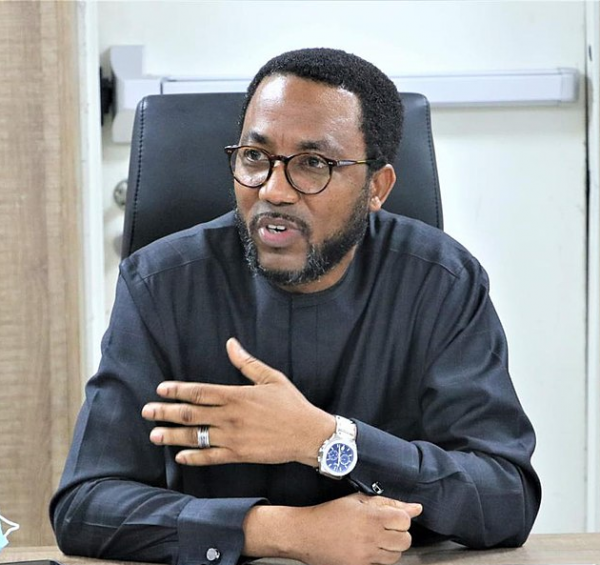Mandatory And Voluntary Product Standard – The National Practices By The Standard Organization Of Nigeria (SON)
– By Dr. Eugene Nweke

Preamble: The recent spates of news making wave within the port industries on the activities of the Standard Organisation of Nigeria, has draw my attention on the need to discuss product standardization practice, hence, my resolve to consult notes and visit the internet, with the mindset to offer a better understanding to both the general public and trading public in particular. As usual, my column shall cover series with statistic and references to give clarity to this modest.
First, it has been noted that; countries often require imported products to conform to the mandatory standards they have adopted for the protection of the health and safety of their people or for the preservation of their environment.
The Agreement on Technical Barrier to Trade (TBT) provide that such mandatory product standards should not be so applied by countries as to cause unnecessary obstacles to international trade. Furthermore, they should be based on scientific information and evidence.
From the viewpoint of the Agreement, mandatory product standards do not create unnecessary barriers to trade if they are base on internationally agreed standards. Where for geographical, climatic and other reasons, it is not possible for members’ countries on international regulations; they are obliged to published these regulations in draft form to give producers in other countries an opportunity to commend on them. The Agreement also obliges members countries to take such comments into consideration when the standards are finalized, thus countries are taken into adequate account.
Voluntary standards, with which compliance is not mandatory, may also pose problems in international trade if they differ widely from country to country. The Code of Conduct Practice for the Preparation Adoption and Application Standards an integral part of the Agreement on TBT therefore urges countries to use their best endeavours to require national standardizing bodies to use the same principles and rules in preparing and applying voluntary standards as are laid down for mandatory standards.
It is in view of the above curred summary from the WCO publication as captioned above, that it has become imperative to undertake a performance appraisal of the application and Practices of the Agreement on Technical/Barrier to Trade (TBT) by the Standard Organization of Nigeria (SON)
- The Confessions of Dr. JOSEPH ODUMODU, DG, SON
For reviewal purposes, it will suffice to note down some of the official confessions made by Dr. Joseph Odumodu, the Director General of Standard Organisation of Nigeria (SON) in his passionate interviews on Punch Newspaper of October 4, 2014, Vol. 7247, on Page 42 and 43.
This modest tends to use these confessions by Dr. Odumodu to open-up issues and set an agenda for further enlightment. On the ideal voluntary/mandatory standard practices’
1.”The influx of substandard products in the country was slowly killing the nation’s economy”.
”I am responsible and I take responsibility for the statement too. It was a statement borne out of, sometimes, frustration. I joined SON in February 2011 and one of the things I did when I started was to do a baseline study, and our study revealed that almost all the market segments in Nigeria, such as building construction, electrical, electronics, baby toys, etc have a preponderance of substandard products up to about 80 per cent and above: no particular segment was spared”.
”Study also showed that most of these products were coming from China and related countries, so, it wasn’t really as if we didn’t know what was wrong or the problem was. I went to China, we spoke with their people but I found out that there was reluctance on their part to cooperate with me in solving the problem because they are earning from it. Rather, the feedback I got was that our people come to them to request for substandard product and they oblige because they are businessmen. But they make something they know that people cannot use in their own country, and send them to our own country? In that same year, we were able to bring the level of standard products down to about 50 per cent from about 85 percent. Then, there was a government pronouncement that we should leave the ports. Since then, we introduced newer products like the electronics products registration but they have not effectively brought the figure down to a level that we want to achieve. But as I said, that statement was made out of frustration”.
4.”I realized that to deal with the Chinese, you needed to involve government at the high level. It’s not something I could do alone. I could talk to my colleague in China but at the end of the day, it is a bilateral thing at the highest level of government, which is one thing I am pushing for at this time because we need to be able to check this. Now we are creating a database through our electronics products registration. We have posted our people to the markets, so major markets have SON people in them. This is because at the end of the day, every product that comes into Nigeria must find its place in the markets to be sold effectively, even if you are not at the port, Our people are there taking database. The reason why we are doing that is ultimately for the bilateral agreement to help us to get those countries to backlist manufacturer that are found wanting. Unfortunately, we have not achieved that up till now”.
5.”When I was invited to make a presentation to the Economic Management Team, chaired by the President, I explained to them that my job is like being asked to fight a lion but my hands are chained at the back. It won’t work, but we can only try. People know what they do, either in Alaba market or Computer Village or anywhere else, have been doing it for many years, so when I came and said we must change, they said ‘change to where’. These are people who come from where I come from, and so it’s often more difficult because if you do something against an Igbo man, he takes it personal. Before you know it, it becomes an issue with Odumodu, not the DG, SON. I also know the risk I’m running in doing that, so we don’t use a strong and tactics, we won’t succeed”.
FOOT NOTES:
From the above confessions, the right views and questions to be deduced from the Director General of Standard Organization of Nigeria confessions is to reask again whether he is subtly seems to have admitted as follows:
a). That the Federal Government has not given the agency the required support to discharge
It’s regulatory obligation to the Nigerian Populace, hence, he posited that he is like a lion sent to go and fight but with his hands being chained behind.
b). That he understands his agency’s weakness, knows and identified that, the substandard products litering the Nigeria Markets comes from China, but lacks the regulatory powers to securing a bilateral trade agreement with the Chinesse government, invariable resorting to fate and alternatively accepting compromises.
c). That his agency administrative failure and inability to firmly discharge its obligatory mandates is responsible for the slowly killing of the Nigerian Economy and the untimely death of so many Nigerians, implying that the Federal Government is insensitive to the plight of the people, also underscoring the fact that the Federal Government generally lacks regulatory abilities to control investors.
d). That the National Legislatures should consider laws that will give room for the creation of Private Quality Standard Accreditators to operate side by side with, as recommended in the agreement on Technical Barrier to Trade (TBT).
e). That the influx of substandard product has rendered our manufacturing sectors uncompetitive and ineffective, thereby hampering on Job creations and employement.
f). That the solution to ending the influx of substandard product into our Country is national decisiveness known as ‘strategic protectionism’ and not lax bilateral agreements.
g). That his greatest albatross are his kinsmen as far as the fight against the influx of substandard product is concerned.
Recall that the Standard Organisation was enacted since 1971 under the regime of General Yakubu Gowon ( Rtd). Till date the agencies work force is less than 2000 Staffs. The Agencies is expected to have a liaison officer housed at the nations foreign embassies especially, in all Nigeria Trading Partner international markets.
THE AGREEMENT ON TECHNICAL BARRIER TO TRADE – TBT: –
A Glance into its Provisions.
At this junction, these modest, shall undertake to a comparative note from the stand point of the global industry practices as enshrined in international Agreements and relevant Protocols to underscore the peculiarities in the Nigeria national product standardization practices as undertaken by the Standard Organisation of Nigeria (SON). These comparative notes (agreements) shall be highlighted side by side with the inherrent imports and trade practices within our trade – port environments, as such, for emphasis sake, it is important to note that;
“International rules on the application of mandatory standards (which are also called Technical Regulations) ARE CONTAINED IN THE Agreement on Technical Barriers to Trade (TBT) the Agreement on the Application of Sanitary and Phytosanitary Measures (SPS) lay downs rules and applying SPS measures. The basic claim aim of the detailed rules and guidelines of two Agreements is to ensure that technical, sanitary and phytosanitary regulations are not formulated and applied by countries so as to create unnecessary obstacles to trade”.
The main organization developing international standard applicable to industrial products are as follows:
International Organization for Standardization (ISO);
International Electronical Commission (IEC);
International Telecommunication Union (ITU); and Codex Alimentarius Commission.
It is worthwhile to visit the following Provisions of this Agreement offer and observe a ‘foot notes’ there after, so as to highlight the obvious.
- (1) Re-examining the Role of Standard
The standard agency has a duty to protect the health and ensures the safety of its population and to conserve the environment, wherefore, compliance with standards imposed by regulatory agencies is obligatory.
However, the Agreement on TBT requires mandatory product standards to be applied on a non-discriminatory basis to imported product. The role of standards can be reviewed from a general approach and in trade promotion concept:
- Standards permeate all business activities and even the day-to-day life of the man on the street. They play an important role in the manufacturing and service industries and in the sale of their product in national and international markets.
- One of the characteristics of modern manufacturing is that manufacturing enterprises do not themselves produce all the parts and components they need situated in far-off countries. The standardization of parts and component gives enterprises a wider chance of lower-cost supplies. It also enables them to maintain inventories at comparatively low-levels and give them the flexibility to use substitute component on the assembly line. Standards thus help industries to cut cost and improve productive efficiency.
- Standards are indispensable for the international marketing of products as they convey consistent and understandable information to the buyer. A foreign buyer who knows the standards to which a product is produced has an insight into its specifications and is able to assess its quality. Standards thus help reduce disputes over specification and the quality of goods and service exported and imported in and out of the country.
As noted above, the Standards Organization of Nigeria, apart from being encouraged to intensify efforts in its enlightenment programmes, the Organization should set up a ” SON Trade Information Desk” (STID) -in all the International Markets across the Nation, taking a clue from the Nigeria Customs Service Trade Hub information Centers situated at the heart of the International trade centers and is still consolidating on it. Reason being that; the essential ingredients in responsible partnership or collaboration is transparency, while Transparency in the context of compliance entails strategic reaching out.
It is expected that information in relation to; “Technical Regulation” covering standards with which compliance is mandatory and that covering standards which is used on voluntary basis; products characteristics; etc should be published, hosted on the website, printed as a flyer and circulated freely cut across all Trading Centre’s , Chambers of Commerce within and outside.
As part of its sensitization efforts, the Standards Organisation of Nigeria should organize and maintain a monthly Zonal “Town Hall Meetings” with the Trading Public and not limiting it only to the Manufacturing Associations as the case may be.
Essentially, the proposed Town Hall Meeting will feature mostly, information on products regulatory, compliance, procedures, offense, etc related issues.
As a mark of responsible partnership the Organisation should improve on its Customer service relation not withstanding its umpire structures because international trade environment revolves more around flexibility and less rigidity in this regards rather treating the so called informal sectors as inconsequential, they should be seen as core investors and treated as responsible partners in progress, hence, their positive contributions towards the growth of our GDP.
The Organisation stands to achieve more, if it evolves the concept of propagating its gospel of compliance with an attitude of converting the unrepentful and uninformed traders via strategic sensitization and responsible partnership. With effective mobilization and sensitization the Organisation will win and actualize its products quality standards quest.
The Director General of the Standards Organization of Nigeria is here advised to refrain from the mindset and eliminate from his thoughts that his Kinsmen are his major obstacles to the crusade against the importation of substandard products. The Director General should appreciate his so called Kinsmen as International Businessmen and core investors to the Nigeria economic development project, who are willing to adapt to regulatory provisions provided such provisions are properly and uniformly structured without leaving room for uneven competition or preferential treatments and undue rigidity. Regarding them as a ‘common informal sector people’ all the time, leaves them with the option believing themselves that they are worthless and disregarded by the Government, who is only interested in their taxes only.
Products quality standard regulation requires National might or Political Supports, it’s not enough for the Director General to go to China and ask for their support in the crusade against substandard product exportation to Nigeria, while forgetting that the Chinese themselves are merely maximizing the concept of “Comparative Advantage”, while insisting that, its our traders that ask for the quality they are shipping into our market.
On this note therefore, it was expected before now that pursuance to political support the Director General Should have generated statistics on the colossal impact of the influx of substandard products into the economy and on the social and economic well being of Nigerians, then approached the Presidency through the Honorable Minister who will work collaboratively with our High Commissioner in China, so as to evolve and secure a bilateral trade Agreement with China Government. This is achievable with respect to our sovereignty.
The Organization should be effectively transparent in its administrative givings and service driven in relating with the trading public. To this end, its Public Relations department should be accorded prompt support so as to cope effectively with the dynamism of Information dissemination and projections.
The Organisation should as well understand that within the context of international trade parlance the more obstacle or barrier we create in the fluidity of trade goods flow, either by rigid, cumbersome procedures, chronicles of charges or arbitrary fees, levies, etc, the more red tapes trader initiates in the process at the long run, hence, the global quest to eliminate red tapes/trade barriers on the part of all trading parties. Therefore, the need for a simplified, compact or “One Stop Shop” administrative process and procedures should be promoted by the Organization, as well as consolidating its charges, fees, levies and penalties.
Above all, the Federal Government should take the Standards Organization of Nigeria seriously, especially with its strategic regulatory obligation to the improvement of the social, safety, environmental, healthy and economic well being of the citizenry.
Looking at the unapproved trade routes within the length and breathe of our Country in relation to its national function and placement, a staff strength of 20,000 Nigerians gainfully employed in the organization is not too much how much more leaving the organization with less than staff strength of 1500. This is a high point of government insensitivity to the yearnings of the masses.
Finally, this modest is a professional counsel to the SON without prejudice
References:









2 Comments